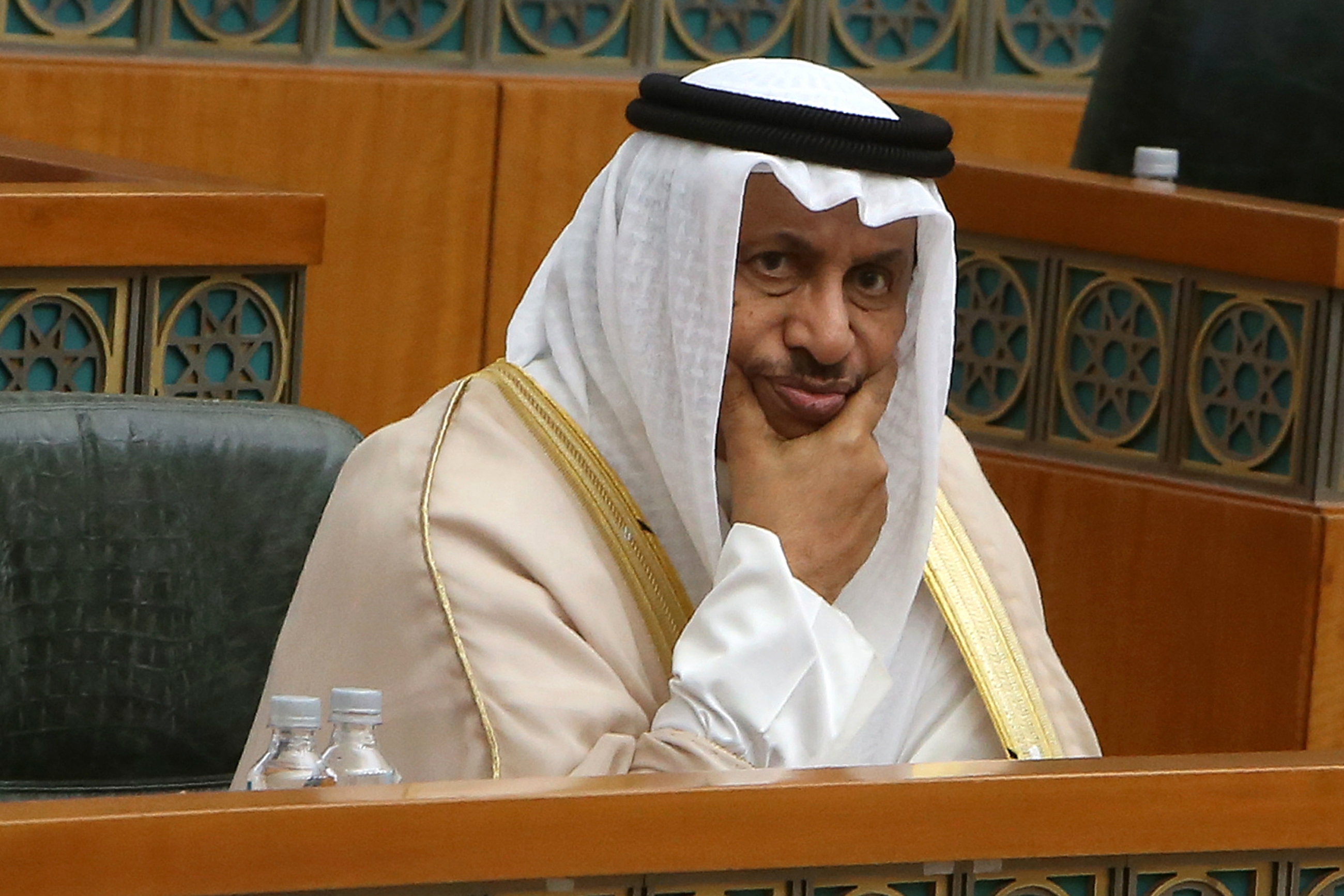Kuwait's prime minister and cabinet quit after disputes with parliament

Kuwait's prime minister submitted his resignation on Thursday along with his cabinet, officials have said, amid allegations of infighting between ministers and criticism of their performance.
Prime Minister Sheikh Jaber Mubarak Al-Sabah "submitted the resignation of the cabinet to the emir... in order to allow for a cabinet reshuffle," government spokesman Tareq al-Mazrem said in a statement.
The sheikh was appointed as prime minister in December 2011.
Minister of Finance Nayef al-Hajraf resigned earlier this month to avoid being questioned in parliament over violating Islamic law by charging interest on loans taken out by retired Kuwaitis from the state-run pension agency.
Earlier this week, Public Works Minister Jenan Bushehri announced her resignation following a lengthy grilling in parliament during which she came under fire for alleged mismanagement of her portfolios and poor use of public funds.
On Tuesday, parliament also grilled Interior Minister Sheikh Khaled al-Jarrah Al-Sabah, a member of the ruling family, over similar accusations and MPs filed a no-confidence motion to oust him.
Independent MP Saleh Ashour told the AFP news agency that as well as those criticisms, disputes between ministers over the current composition of the cabinet had also triggered the resignation.
Parliament speaker Marzouk al-Ghanem told reporters on Thursday that "a large group of MPs believe that the problem lies in the government team because it is not homogenous."
However, Ghanem ruled out the possibility that parliament could be dissolved by Emir Sheikh Sabah al-Ahmad Al-Sabah.
Political disputes
Cabinet resignations in Kuwait happen frequently when elected lawmakers are set to question or submit a no-confidence vote against senior government officials.
The emir still has to accept the resignation in order for it to be final.
After accepting the resignation, the emir can rename the outgoing premier or appoint a new head of government to form the cabinet, the eighth since 2011.
Kuwait is the only Gulf state with a fully elected parliament that enjoys wide legislative powers and can vote ministers out of office.
The oil-rich country has been shaken by political disputes between lawmakers and the ruling family-led government for over a decade, with parliament and cabinets being dissolved several times.
A demonstration held outside the Kuwaiti parliament last week over alleged rampant corruption was reminiscent of past crises that have marred political life in the country.
The OPEC member, which has a native population of 1.4 million in addition to 3.3 million expatriates, pumps 2.7 million barrels of oil daily.
Middle East Eye delivers independent and unrivalled coverage and analysis of the Middle East, North Africa and beyond. To learn more about republishing this content and the associated fees, please fill out this form. More about MEE can be found here.





